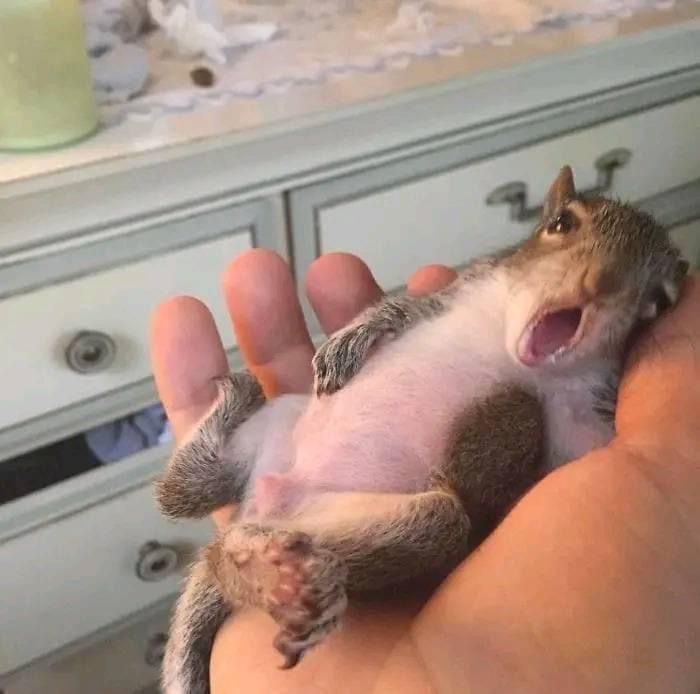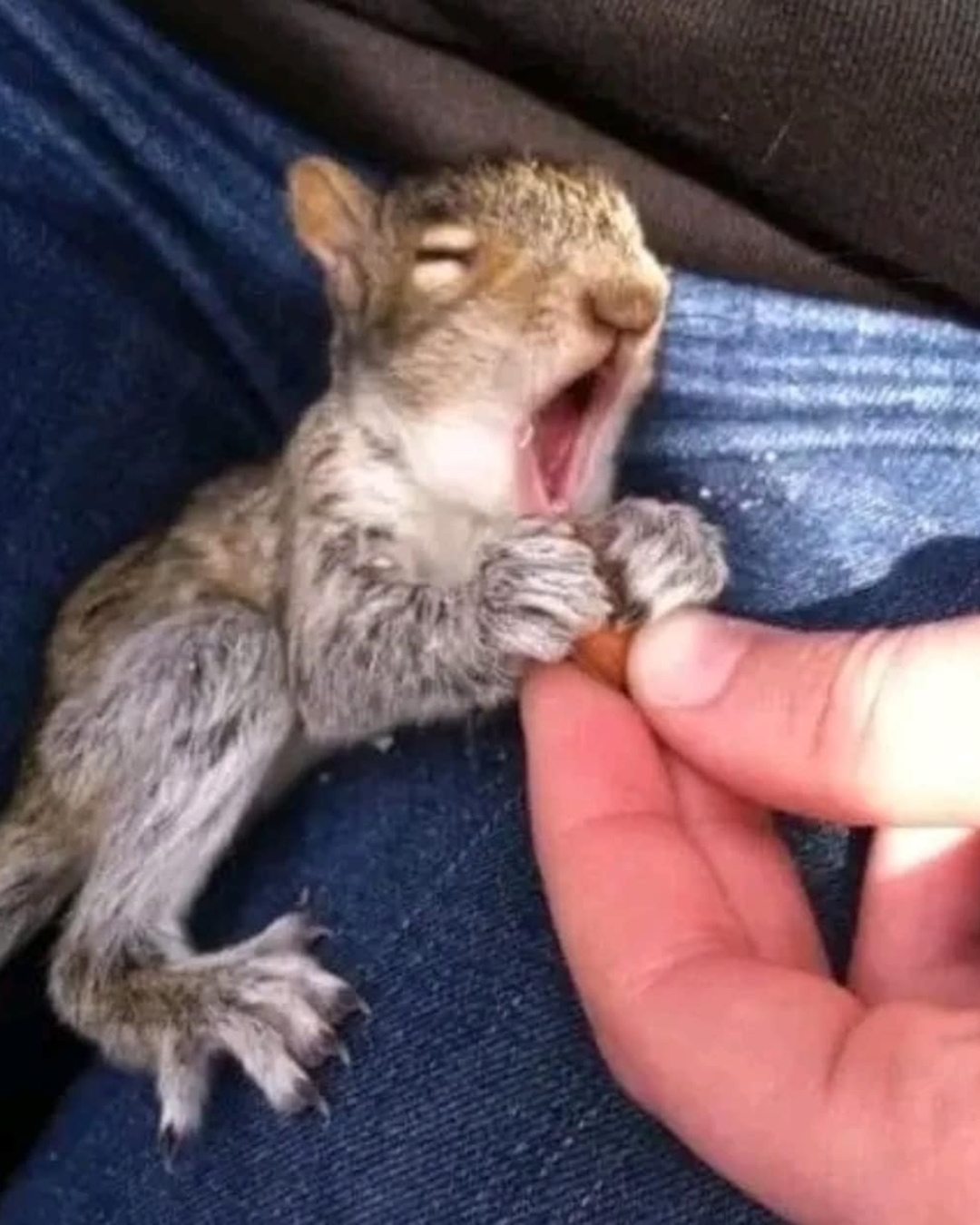It often starts unnoticed – a soft thud, a rustle in the leaves. A baby squirrel, perhaps exploring too boldly or knocked from its nest, takes a fall. Suddenly separated from its mother, it lies stunned, alone, and terrified. This isn’t just a moment of distress; it’s the beginning of a desperate fight for life, often leading to a heartbreaking Tiny Plea for Help directed at the most unlikely saviors: humans. These encounters are touching stories that require our understanding, not fear.
Hours pass for the fallen baby. Hunger sets in, thirst becomes unbearable. Instinct screams for warmth, safety, and the nurturing presence of its mother, who is nowhere to be found. Driven by sheer desperation, these tiny animals sometimes do something remarkable – they overcome their natural fear and approach humans.

Not Aggression, But Desperation
It’s crucial to understand what this behavior means. When a baby squirrel frantically chases after you, clings to your pant leg, or tries to climb onto your shoe, it is not being aggressive. It is not rabid (squirrels very rarely carry rabies). It is making a Tiny Plea for Help. This boldness isn’t madness; it’s a last-ditch survival instinct kicking in when its need for help outweighs its fear.
Many of these orphans have already endured significant trauma – the fall itself, near misses with predators, or days spent wandering alone, weak and disoriented. By the time they reach out to a person, they are often severely dehydrated, starving, exhausted, and possibly injured. Their frantic actions are a cry for the basic necessities of life they can no longer find on their own.
Read More: Man Loses 360 Pounds Naturally, Internet Rallies to Support His Next Step

A Moment of Trust
Imagine a tiny squirrel, eyes half-closed from exhaustion, paws trembling, reaching up to clutch a stranger’s offered hand. It wraps its minuscule fingers around a thumb, holding on tight, refusing to let go, perhaps even trying to nurse on the finger out of instinct and desperate hunger. This isn’t just an animal encounter; it’s a profound moment of trust. The squirrel, in its vulnerability, sees a potential lifeline. It views the human not as a threat, but as its only remaining hope. When offered a nut, it might clutch it like the most precious treasure, a flicker of comfort finally crossing its tiny face.
How We Can Respond
It’s easy to misunderstand these situations, to react with fear or annoyance. But recognizing this behavior for what it is – a desperate Tiny Plea for Help – changes everything. These little ones approach us because, on some fundamental level, they believe we can save them. And often, we can.
If you encounter a baby squirrel exhibiting this behavior, remember its story. It’s likely hungry, thirsty, and heartbroken. You might be its last chance.

- Offer water: Dehydration is often the most immediate threat. A shallow dish of water can be life-saving.
- Offer appropriate food (if safe): While nuts seem obvious, rehabilitators often have specific advice. A simple online search or call can guide you.
- Provide safety: Gently place the squirrel in a small box with soft bedding in a quiet, warm, dark place away from pets.
- Contact Experts: Crucially, contact a local licensed wildlife rehabilitator or animal rescue organization. They have the expertise to properly care for the orphan and give it the best chance of returning to the wild.
- Do Not Harm: Never intentionally harm or chase away a baby squirrel acting this way.
These small animals remind us of a fundamental truth: compassion isn’t limited by species. It’s our response to vulnerability, to a life reaching out in desperation. When a tiny creature trusts us enough to make that Tiny Plea for Help, we have a choice. We can prove that trust was warranted. We can choose kindness.
Full Story: The Hidden Meaning Behind Princess Diana’s Cannes Gown: A Heartfelt Farewell to Grace Kelly



